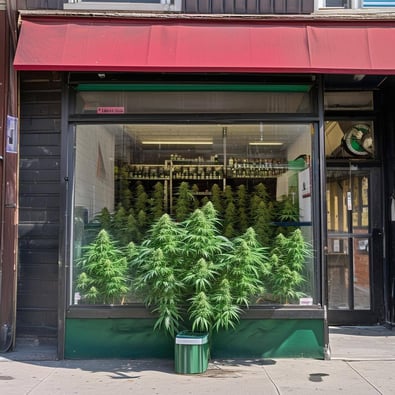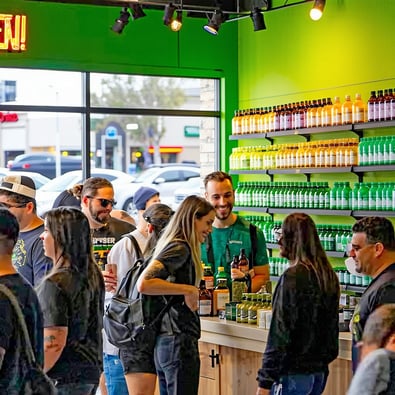The sponsors say it's about safety, but others say it's about limiting competition.
Unregulated cannabis products would no longer be found in gas stations or convenience store shelves if two Missouri legislators get their way next session.
State Representative Chad Perkins (R-Bowling Green) and Senator Nick Schroer (R-St. Charles County) have both filed bills that would bar products containing hemp-derived THC products, or any “intoxicating cannabinoids,” from being sold anywhere other than licensed marijuana dispensaries.
The bills are the latest effort to close a loophole that allows THC derived from hemp, not marijuana, to be sold in stores in Missouri. Legislators have specifically taken aim at delta-8 THC, which can get a person high in concentrated amounts.
Products containing the compound have been banned in at least 17 states and restricted in seven more as the federal government figures out how to regulate it. Safety concerns aren’t over delta-8 itself but what other ingredients products made with the compound could contain, such as heavy metals.
"This legislation provides consumer protections in a portion of the industry that has very little consumer protection,” Perkins tells the RFT.
Perkins’ and Schroer’s bills would allow the state to regulate delta-8 or any so-called cannabinoids that activate the same receptors as delta-9 THC, the active ingredient in marijuana. Products containing these substances would move under the same regulatory umbrella as marijuana — and only businesses licensed under Missouri’s marijuana program could sell them.
So if a local smoke or vape shop, for example, currently sells delta-8 products, it would have to stop if either of the bills pass.
Critics of Perkins’ and Schroer’s bills believe the measures are less about consumer protection and more about limiting competition for Missouri’s “marijuana monopoly.” A similar bill last session received the same criticism.
“These bills are being pushed under the guise of protecting consumers, but it’s really being done to lock-in profits for the marijuana industry,” says lobbyist and Missouri Hemp Trade Association Executive Director Courtney Curtis.
But Schroer pushes back on this notion. He says his bill has nothing to do with removing competition from a free market and everything to do with consumer safety.
“My district, like many others throughout the state, has been plagued with constituents using products sold in ‘head shops’ and gas stations that resulted in them being placed in their local emergency room,” Schroer writes in an email to the RFT. “Constituents have shared stories with me about the horrific side effects either themselves or their children have experienced when purchasing certain unregulated products.”
Schroer did not respond to a follow-up email asking for specifics on what side effects his constituents experienced by press time.
Curtis says he’s all for regulations, but these proposals aren’t it.
“The sheer reality of what’s being presented is just to lock-in the practice of the marijuana industry,” Curtis says.
What is hemp-derived THC, anyway?
Hemp and marijuana come from the same species of plants, Cannabis sativa. The main difference between the two lies in how much THC they have. Marijuana contains the most THC, the psychoactive compound responsible for weed’s “high” effects. Hemp contains practically no THC: less than 0.3 percent.
What hemp does have, however, is lots of CBD, a non-psychotropic compound. While the vast majority of hemp is used for industrial purposes (it can be processed into hemp oil, plastics, clothing, paper and more), manufacturers harness hemp’s CBD to produce concentrated amounts of delta-8 THC.
In Missouri, most vendors put an age minimum on delta-8 purchases, but there’s currently no law that would stop a child or teenager from buying the products at businesses where they’re currently sold.
It’s legal due to the 2018 Farm Bill that removed hemp from the DEA’s schedule of controlled substances and legalized any of hemp’s derivatives. Since the bill effectively legalized everything that wasn’t delta-9 THC, a craze for delta-8 — which brings about a cheaper albeit less intoxicating high — followed.
For more Cannabis News like this, circle back to 420intel.com!
420 Intel News | 420 Advertising | Cannabis Business News | Medical Marijuana News | Recreational Marijuana News




